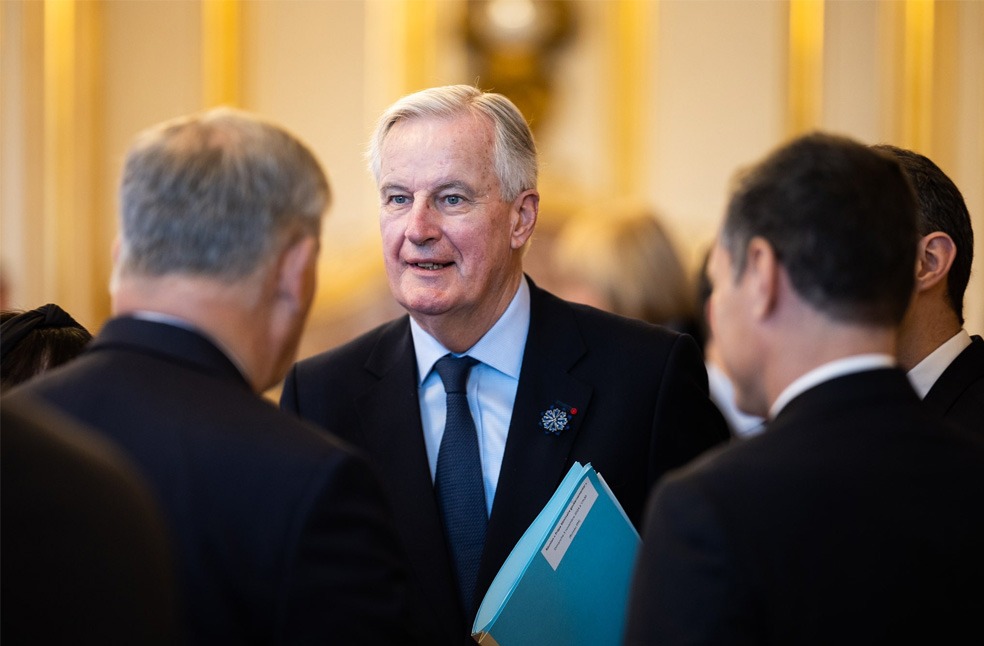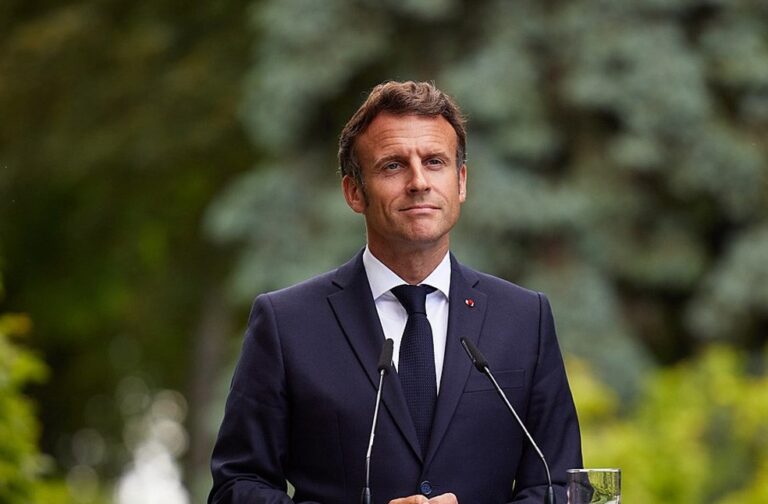Paris: French President Emmanuel Macron announced that he will appoint a new Prime Minister “in the coming days” after Michel Barnier resigned following a no-confidence vote in parliament.
The vote, which saw 331 MPs support the motion against Barnier, marked the first time in more than 60 years that a French government had been voted out of office.
Barnier had only been in office for three months after his appointment by Macron, and his resignation was triggered by the New Popular Front (NFP) and Marine Le Pen’s National Rally (RN) uniting to challenge his leadership.
In a 10-minute address to the Nation, Macron rejected opposition calls for him to step down, stating that he would remain in office “fully” until the end of his mandate in 2027.
Macron thanked Barnier for his service, calling it a difficult yet dedicated tenure, but criticized the far-right and hard-left factions for collaborating in an “anti-republican front” aimed at bringing down the government.
The no-confidence vote was precipitated by Barnier’s use of special powers to pass his budget without a parliamentary vote, a decision that sparked opposition across the political spectrum.
Marine Le Pen responded to Macron’s criticism on social media, reminding the president that censure is a constitutional right, as outlined in France’s Fifth Republic.

The motion of no-confidence had been filed after Barnier’s controversial budget move and was supported by 331 MPs, far surpassing the 288 votes required for it to pass.
As a result of the no-confidence vote, Barnier’s resignation was effective immediately, and the budget was withdrawn. He will remain in office in a caretaker role until a new government is appointed, though Macron’s role remains unaffected.
Macron admitted that his decision to call snap elections earlier this year, which led to a parliamentary deadlock and further political crisis, was not well-received. He acknowledged that many blamed him for the situation but insisted that some political opponents had chosen “chaos over responsibility,” focusing more on the upcoming presidential elections than on the needs of the French people.
The appointment of a new prime minister is seen as crucial, with Macron’s government needing to prioritize the 2025 budget and restore stability.
Speculation about the next prime minister includes candidates such as Defence Minister Sébastien Lecornu, Interior Minister Bruno Retailleau, and centrist former presidential candidate François Bayrou. However, with the parliament divided, securing support for any candidate could prove challenging.
The timing of the new appointment is uncertain, especially with world leaders, including US President-elect Donald Trump, scheduled to attend the opening ceremony of the rebuilt Notre-Dame Cathedral in Paris.
The cathedral’s reconstruction, completed in just over five years after the devastating 2019 fire, has been hailed as a symbol of France’s resilience and capability to accomplish great things.
Macron also highlighted France’s successful hosting of the 2024 Olympics as proof that “we can do the impossible,” reflecting on the global admiration for the nation’s achievements despite ongoing political turmoil.



